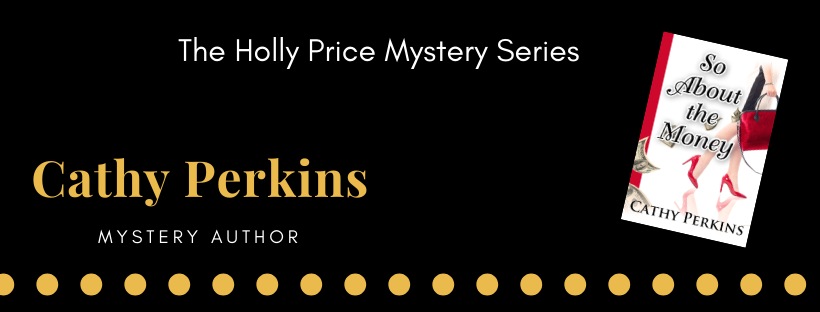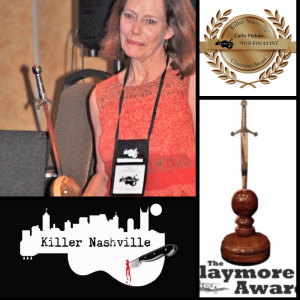We’re all in this pandemic together. That means we all need to look out for each other and give back where we can. When I looked for ways to help others, the obvious kinda stared me in the face. I work in the financial sector and could talk about financial moves to make right now if you’re out of work and worried.
Hopefully, you received your economic stimulus payment today. If not, you can check the IRS website (go here) to see where you are in the process. There’s also a link for the alternative registration if you didn’t file a tax return last year.
In the meanwhile, there are other steps you can take if you are caught in the shutdown without a paycheck.
Your job and benefits
Check with your employer and get a timeline. If this a furlough? A complete separation from service? Will you be recalled as soon as your company reopens or is this a permanent layoff?
Are there any employer provided benefits? Ask about the status of your benefits, especially your health insurance.
Employees with most employers can opt to remain in their current health insurance, typically for 18 months but sometimes longer. COBRA ― named after the law that created it, the Consolidated Omnibus Budget Reconciliation Act of 1985 ― gives former employees that right. Unfortunately, the coverage is usually expensive. The employee must pay the entire premium (i.e. without the employer contribution) plus an admin charge. There is a “grace” period before the laid off employee has to elect into coverage (and pay the premium), but the coverage itself is retroactive to the date of loss of coverage.
Medicaid or CHIP, as the Children’s Health Insurance Program is known, may be an option, depending upon your income level. Income thresholds vary from state to state. Parents can check their children’s eligibility and apply for coverage by visiting InsureKidsNow.gov. Adults can check their own eligibility via Benefits.gov. in addition, several states reopened the state-run health insurance exchanges, so private insurance may be possible if it appears the layoff will be longer term.
Being laid off can be an overwhelming and stressful experience of loss and change. Make sure you are focusing on your relationships, getting fresh air and exercise, taking time for yourself and getting up to speed on where to reach out for help if you need it. If your layoff is temporary, check in with friends from work and resist the temptation to lash out at your employer. Empathy is a two-way street.
Unemployment
If you haven’t already filed for unemployment benefits, do this first. Yes, the state websites were overwhelmed and crashing and the lines were long, but go do this. Try to apply online with your state’s labor department rather than over the phone or in person. You’ll be sent important follow-up information. To apply, you can file online (Start here. The link is for all states.)
The Coronavirus Aid, Relief, and Economic Security Act, CARES, signed into law on March 27, adds $600 in federal benefits to the amount that states provide. The state benefits vary wildly, but every newly unemployed person, including the self-employed (which also includes contract and gig workers), people who work part time, and those whose hours were reduced because of the pandemic will most likely be eligible for the federal benefit.
The federal supplement, which is scheduled to last four months, extends benefits for eligible workers until Dec. 31. In normal times, state unemployment benefits end after 26 weeks.
Unemployment benefits vary enormously by state. You may get enough to sustain you if you cut unnecessary expenses — or you may not. If you come up short, you have other options.
Small business owners may be able to apply for a Paycheck Protection loan but that will have to be a separate post. Although logjammed, the money from CARES is fully allocated according to a number of sites. Congress is negotiating another recovery program that hopefully will expand this program.
Mortgage payment
If your mortgage is federally backed, the CARES Act gives you a right to forbearance for up to 12 months. Federally backed mortgages include loans owned by Fannie Mae, Freddie Mac and various federal agencies. Forbearance means you don’t have to make payments, although interest will typically still accrue. There’s also a 60-day moratorium on foreclosures and foreclosure-related evictions for these mortgages.
If you’re not sure whether your mortgage is federally backed, call the company that takes your mortgage payments, aka your loan servicer, and ask. Even if your loan is not federally backed, you may be eligible for some kind of relief. Explain your circumstances and ask what help is available.
If you don’t ask, the answer if “no.”
For additional information, go here: Consumerfinance.gov
Many other lenders, including credit card issuers, offer forbearance options as well. Some have information and application forms on their websites while others require you to call the customer service number to request help. Again, be prepared for long hold times.
Rent and utilities
A number of states have implemented policies to prevent eviction during the crisis, or at least through May—but understand even if your rent or utilities are suspended, you still have to pay them later. Try to pay at least part if you can, but reach out to your landlord and explain your situation. Odds are, the person who owns your building is in the same bind. He or she owes a lender for the building’s mortgage and common area utilities and insurance and is scrambling to figure out where the money to pay those bills is coming from.
Spending
Look at everything. Say the B word (budget) out loud. Can you live without a subscription, be it television or another entertainment charge? Cancel the gym, the monthly basket of whatever. There are a ton of services available for free. Question everything. Use this time to explore some of those options.
Tuition – yours or your children’s
Schools are closed or moved online this spring, but should reopen in the fall—and your financial picture has changed. Contact your school. You can ask for more financial aid from your child’s college based on your changed circumstances. Check first to see if the financial aid office has an online form you can use or has outlined its preferred procedure for appealing a financial aid offer.
Student debt
Federal student loan payments have suspended by the CARES Act until Sept. 30, with interest waived. Certain loans, if made before 2010, are not covered by the relief bill. However, other federal loans, for example Family Federal Education Loan (FFEL) program loans, which don’t qualify for the CARES Act, can be consolidated through the U.S. Department of Education’s direct loan program. The consolidation loan qualifies for relief.
More information is available at StudentAid.gov.
Last resort funding
There’s one final part of the CARES Act that could help you: the “coronavirus hardship withdrawal.” The law allows you to withdraw up to $100,000 from your 401(k) or IRA without penalty.
The withdrawal is taxed, but you can effectively spread the tax bill over three years. If you can repay the money within three years, you can amend your tax returns and get a refund of those taxes.
Taking the money and not repaying it could have a devastating effect on your future retirement, but if you’ve run out of other options, a retirement plan withdrawal could help keep you afloat.
Final Word
If you still have a job, focus on an emergency fund. If you already have 3-6 months expenses in a cash-equivalent fund, good planning! If not, build that fund first and then consider the current stock market swan-dive an opportunity to build a regular investment fund.
If you’ve lost your job, you may be tempted to put off asking for help, hoping that you’ll land another job before your household is on financial fumes. Don’t go there. Assume you could be out of work for many months. Not only is unemployment skyrocketing, but a vaccine could be a year or more away, indicating the economic disruptions likely will continue.
When you’re ready, be open with your friends and family about your job situation. You don’t have to share all the details with everyone, and feel free to set some boundaries if you don’t want them to pester you with questions. The key here is to acknowledge that this is a hard time and that you’ll need encouragement. If you’re married, talk with your spouse. Don’t let shame keep you isolated in the dark. If you have kids, be honest about how this will impact your lifestyle and the time you spend together. Do whatever you’ve got to do to get the support you need.
Don’t worry about the long term. Focus on what can be done in this moment to get through the next few months. Everything will get back on track, but consider planning in 30-to-90-day increments. It’s much less overwhelming and gives you lots of flexibility to embrace opportunities that come your way.
Good luck, and don’t lose hope.


 In case the video isn’t cooperating, this’ll give you a good idea…
In case the video isn’t cooperating, this’ll give you a good idea…







 Thank you again to the
Thank you again to the 







